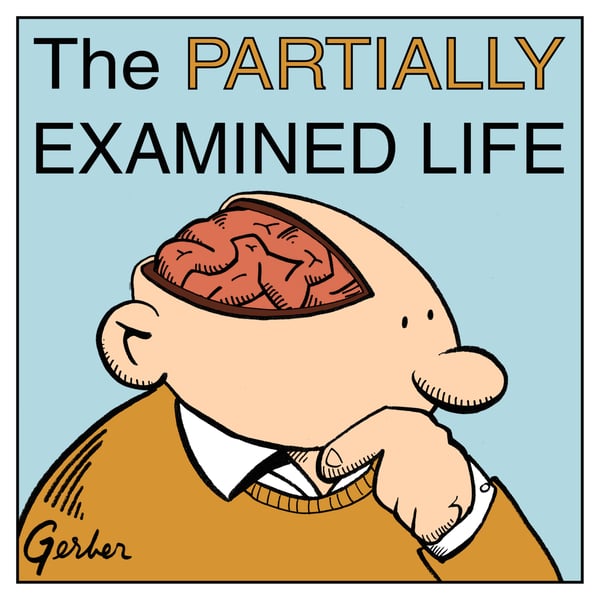Ep. 324: Plato's "Cratylus" on Language (Part One)
The Partially Examined Life Philosophy Podcast
Mark Linsenmayer
4.6 • 2.3K Ratings
🗓️ 4 September 2023
⏱️ 50 minutes
🧾️ Download transcript
Summary
On Plato's mid-period dialogue from around 388 BCE. How do words relate to the things they represent? Socrates first argues that words represent things, and so doing etymology is a way of learning philosophical truths, then seemingly reverses himself.
Get more at partiallyexaminedlife.com. Visit partiallyexaminedlife.com/support to get ad-free episodes and tons of bonus discussion, including a supporter-exclusive part three to this episode coming out next week.
Sponsors: Visit GreenChef.com/60pel (code 60pel) for 60% off and free shipping for the #1 Meal Kit for Eating Well. Maximize the power of your charitable giving at GiveWell.org (choose PODCAST and enter Partially Examined Life at checkout). Check out the U. of Portsmouth's Life Solved podcast.
Transcript
Click on a timestamp to play from that location
| 0:00.0 | Maximize the power of your charitable contributions at www.givewell.org |
| 0:11.5 | You're listening to the partially examined life, a podcast by some guys, |
| 0:14.3 | where at one point, set on doing philosophy for living, but then thought better of it. |
| 0:17.6 | Our question for episode 324 is something like, how do words relate to the things they represent? |
| 0:24.2 | And we read Plato's mid-period dialogue, The Cratalyst, written somewhere around 388 BCE. |
| 0:30.6 | For more information, please see PartialExaminedLife.com. |
| 0:33.7 | This is Mark Linson-Meier, in Madison, Wisconsin, whose middle name was improperly given as |
| 0:38.6 | danger. This is Wes Aulon, worshipper of Kodidus Tan-Linon, in Cambridge, Massachusetts. |
| 0:46.3 | The translation that we're using, it's in the Plato Complete Works edited by John Amcouper, |
| 0:51.6 | the specific translator for this dialogue is CDC O'Reave. This is a very weird dialogue. |
| 1:00.6 | It's sort of like the Parmenides and that there's a whole section of it that you're just like, |
| 1:04.8 | I'm supposed to actually read this with my eyes. It's supposed to wade through this, |
| 1:09.6 | because it's largely about etymology. It touches the question that, you know, I mentioned at the |
| 1:14.6 | beginning, it seems obvious to us. Words are there by convention. They don't depict, they don't |
| 1:20.5 | represent the word dog. It doesn't sound like how a dog sounds. It doesn't sound like how a dog looks. |
| 1:28.3 | Oh, but maybe if we look at the etymology, Plato would say it'll be animalists, |
| 1:32.8 | barkiest, or whatever, you know, that we'll say, oh, okay. This is the kind of thing that he's doing. |
| 1:37.4 | And of course, he's doing it in ancient Greek, which is a nice way to remind us the readers about |
| 1:42.4 | what all these ancient Greek words are. It's nice to see those, but he's playing with this hypothesis |
| 1:49.0 | that maybe words actually do, in a very direct way, represent what the things that they are supposed |
| 1:55.5 | to, you know, that they refer to, they don't just point at, but they actually depict in some way, |
| 2:00.6 | so then it should be possible to have a name that is wrong. Yeah. The question is whether names |
... |
Please login to see the full transcript.
Disclaimer: The podcast and artwork embedded on this page are from Mark Linsenmayer, and are the property of its owner and not affiliated with or endorsed by Tapesearch.
Generated transcripts are the property of Mark Linsenmayer and are distributed freely under the Fair Use doctrine. Transcripts generated by Tapesearch are not guaranteed to be accurate.
Copyright © Tapesearch 2025.

